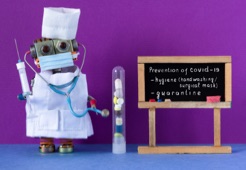COVID-19
What kids want to know and what we want them to know
Below are several links with useful information for many questions asked (or bottled up) by kids around us, regarding the new coronavirus disease (COVID-19).
No matter what age the child is, and no matter what words or actions they employ, all children are seeking answers to the following three basic matters:
- Am I going to be safe?
- Are adults caring for me going to be safe?
- Will my routine change?
Children thrive on safety, and do best in environments where they feel they can rely on its predictability. Therefore, anytime we talk with our kids, it is best to address these concerns. Following points will help us place ourselves in the best position to do so:
* When we are anxious, kids around us are anxious. This does not mean we have to somehow push aside or pretend, which is impossible anyway. Also, kids are by nature amazingly attuned to our state of mind, and will sense our anxiety, despite all effots to hide it.
* People are most anxious when there is ambiguity and uncertainty, and most relaxed when the next steps are clear. Therefore, informing ourselves as best as the available accurate knowledge is the first step. Ensuring good health by eating, sleeping well, regular exercise, mindfulness or meditation practices, and making time for activities or hobbies that replenish us will keep us stronger against stress. This way, we can also remain true to ourselves and answer an inquiring child that, yes, we are anxious and here is what we are doing to help ourselves. This way, we no longer have to hide our anxiety, and as we share it, so do we share the solution with it by modeling.
* Kids are curious by nature. They will hear things, ask questions, and even with very little information, or none of it, will conjure up their own answers. When we answer their questions, we need to also make sure we are not inundating them with complex details beyond their immediate comprehension. Now, a natural question is, "how much do I tell, and how?" The easiest answer is to follow your child's pace. Here are three tips to this end:
1. First ask what your child heard or knows. This will give you a chance to see the source of their information.
2. Next, before jumping to corrections, or giving advise, inquire about what your child imagines. This will reveal what they are worried about, and what they think can be done. During this step, make sure you continue validate their concerns and feelings. Feeling understood will allow your child to comfortably move to the next step.
3. Finally, you will have the best chance to provide any corrections for misconceptions, and fill in for any knowledge gaps. While correcting misinformation, make sure your child does not lose trust in others, or place blame on them. Afterall, this is why many asked the president to stop calling it the "Chinese virus."
We do not know how long the pandemic will last, nor do we know its impact until dust settles. However, one thing is for certain. It will be over someday, but the fears little minds conjure up may remain in effect long after COVID-19 is gone. How we help them today, in time of crisis, will help them remain resilient and with a well founded sense of agency in days to come.
For further reading:
By MGH Clay Center:
7 Ways to Support Kids and Teens Through the Coronavirus Pandemic
By MassGeneral Hospital for Children:
How to Talk to Your Child About the Coronavirus
By National Association of School Psychologists:
Talking to Children About COVID-19 (Coronavirus)
